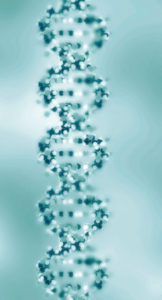Salivary Gland Abnormalities Linked to Cleft Lip/Palate
New research published by the Journal of Dental Research suggests that dental anomalies associated with cleft lip/cleft palate may be the result of salivary gland abnormalities.
 New research published by the Journal of Dental Research suggests that dental anomalies associated with cleft lip/cleft palate may be the result of salivary gland abnormalities. The article, “Massively Increased Caries Susceptibility in an Irf6 Cleft Lip/Palate Model,” examines this causal relationship, with findings based on evaluation of a mouse model.
New research published by the Journal of Dental Research suggests that dental anomalies associated with cleft lip/cleft palate may be the result of salivary gland abnormalities. The article, “Massively Increased Caries Susceptibility in an Irf6 Cleft Lip/Palate Model,” examines this causal relationship, with findings based on evaluation of a mouse model.
The researchers determined that mice with a mutation on the gene IRF6 presented with salivary gland abnormalities that negatively affected gingiva and oral health. According to the authors, this may be due to an oral environment that is too acidic or contains excess bacteria. Both acidity and overexposure to bacteria are associated with negative oral health outcomes. Among individuals without this gene mutation, salivary glands excrete saliva, which acts as a protective agent against acidity and oral bacteria. In those with the gene mutation, the salivary gland ducts did not properly develop, hindering their ability to produce and dispense protective saliva.
The researchers are hopeful this breakthrough may be used to develop new strategies for managing the oral health of patients with cleft lip/cleft palate. Further research is planned.
From Dimensions of Dental Hygiene. February 2017;15(2):16.

